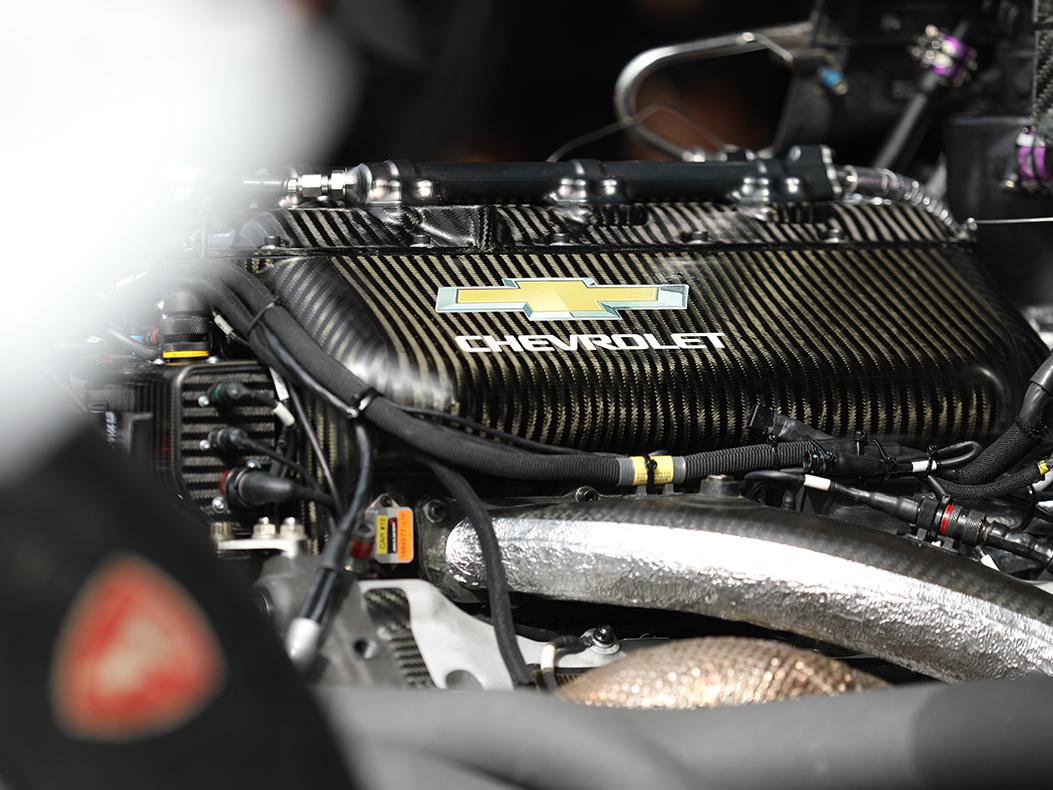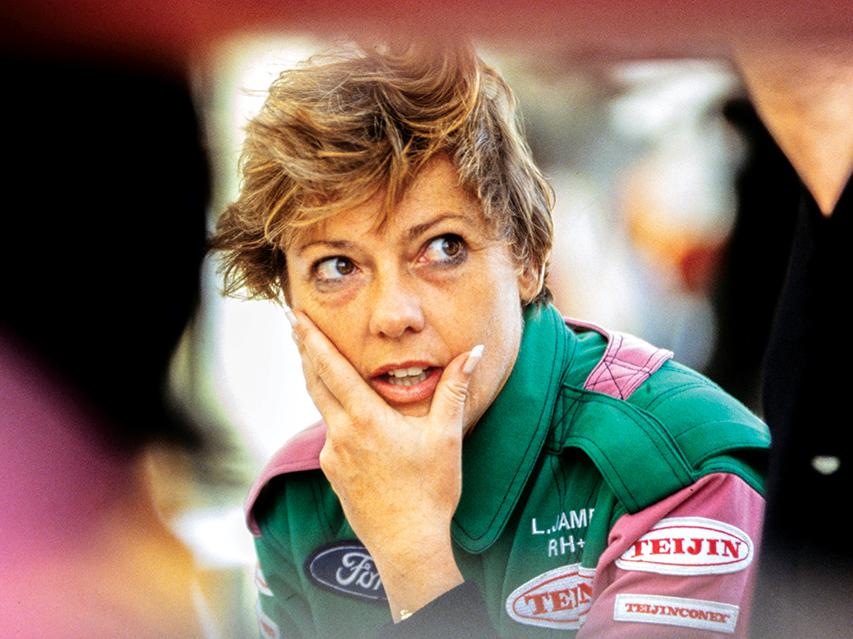Future-Proofing

Photo courtesy of Mahindra Racing
As automakers continue to shift their development focus toward EVs, hybrid technology, and sustainability, forward-thinking teams and sanctioning bodies across the globe are now applying similar efforts to their racing programs.
Efficiency has been a cornerstone of racing since the advent of organized competition. While we tend to think of this engineering work in elements like aerodynamics and powertrain output, a growing contingent of motorsports entities is now looking at their overall operations in much the same manner, identifying areas where waste exists and eliminating any excess.
These efforts come as part of a widespread push within motorsports to not only better understand where organizational improvements can be made, but also to prepare for the road ahead. “I think you can look at it from a longevity perspective,” observed Robbie Montinola of SRO Motorsports Group America, Austin, Texas.
“We’re in a business that’s continuously changing,” he continued. “We work hand-in-hand with automotive manufacturers to develop cars for the different classes that compete across the world, and a lot of their focus is on carbon reduction and electric vehicles. By looking down the line and working closely with these automakers who also have a similar mindset, we’re able to position our business in a manner that will be sustainable as the marketplace continues to change.”
Reducing the carbon footprint of a company is often a highly specialized endeavor, but as we discovered, there are also strategies in use today that can be applied more broadly as well. Here we’ll take a closer look at the efforts of several motorsports organizations that are leading the charge toward greener racing in order to gain some insight into what actions are being taken now, and what the path forward looks like.
McLaren Racing
Environmental responsibility is nothing new for McLaren Racing of Surrey, United Kingdom. The team has been carbon neutral since 2011, and it set a goal to be carbon net-zero by 2030. For those who might be unfamiliar with the terminology, “carbon neutral” means that any CO2 released into the atmosphere from a company’s activities is balanced by an equivalent amount being removed, while “carbon net-zero” means that a company or activity has effectively eliminated its carbon footprint altogether, so no carbon needs to be captured or offset in turn.
“We were the first team to be certified as carbon neutral and the first team to be awarded the FIA Gold Standard, and we’ve maintained both statuses continuously ever since,” said McLaren Racing’s Tim Bampton. “I think it is part and parcel to our commitment to operate in a way that is responsible, and lead in an area of great importance.”
It speaks to a larger philosophy within the McLaren Group, where the environment and sustainability have been on the company’s radar for some time. “When the McLaren Technology Center was built back in the late 1990s, minimizing its environmental impact was very much part of the consideration for its design,” Bampton said. “For example, the lake in front of the center actually serves as a cooling pond for the wind tunnel. For us, it’s about considering where we can be innovative, and where we can reduce consumption while doing so.”
Bampton also cited the team hub, which was recently revamped to improve its efficiency. “This is essentially our operations center when we’re at races,” he said. “By reconfiguring and refurbishing it based on what the team’s needs are now, we estimate that we’ve been able to reduce its carbon footprint by at least half.”
As McLaren Racing eyes that target of achieving net-zero carbon emissions by 2030, the team is currently plotting out the specific steps that will get it there in less than 10 years’ time. “We’re forming a dedicated sustainability team within the organization, and we are working closely with Deloitte, one of our key partners, to thoroughly audit our operations and create benchmarks that will help us work toward specific goals along the way,” Bampton said. “It’s a process that we’re actively involved in right now. And alongside that, we will take every opportunity available to us that reduces our carbon footprint through more efficient operations.”
SRO MotorsportsGroup America
SRO has pledged to make carbon reduction a priority for 2021. With a range of green strategies and initiatives launched this spring, the group has set a target for carbon neutrality by 2023. What’s more, SRO is not only taking stock of its own operational procedures, the organization is also actively encouraging teams that race with SRO to prioritize carbon reduction and removal by way of its new Road to Carbon Neutrality competitor program. While the ultimate goal is to achieve carbon-zero activities, emissions that cannot currently be avoided will be offset by investing in carbon credits, in turn supporting programs in the fight against climate change.
“We’ve been working really diligently to come up with a comprehensive plan,” said Montinola. “Using the 2019 season across Europe, America, and Asia as a baseline, we spent a year working with several different organizations to get a better understanding of what our footprint actually is.” That assessment looked at the allotment that SRO itself was putting out as well as the teams, SRO’s partner companies, fuel providers, and other major players in the group’s racing operations.

Although he noted that SRO is not positioning itself to become an EV-only organization, Montinola said that as major automakers vow to eventually eliminate internal combustion engine (ICE)-powered vehicles from their product portfolios, SRO needs to be able to accommodate those changes. “Those announcements obviously have big implications in terms of what those manufacturers can do from a motorsports perspective,” he said. “We want to make sure that Ferrari, Porsche, and other automakers can still see a place for themselves in motorsports as that transition takes place.”
Internally, SRO has begun to implement policies with an immediate impact. “For instance, we’re now using solar energy to power our SRO London office, and we’ve moved to a more energy-efficient HVAC system,” Montinola explained. “We’re also looking at ways that some folks can work remotely on race weekends to reduce unnecessary travel. Timing and scoring can be done off-site, for example, as well as parts of our television and streaming productions. That reduces the number of people we need to put on airplanes, get rental cars for, and put in hotels. Every bit helps reduce that footprint.”
SRO’s carbon footprint assessment has also given the organization better understanding of how it can streamline its race calendar. “From a logistics perspective, we have to move trucks all over the place,” Montinola said. “We want to be more efficient about how we schedule events, so these trucks don’t have to crisscross the United States multiple times to go from event to event.”

Additionally, SRO is currently working with its global fuel provider, Total, to develop reduced-emissions race fuel. “Since the same fuel is run in every single race car that we have, they can produce a large bulk of a specific formula for SRO,” he said. “That allows them to get creative about the methods they use to yield those improvements, whether that’s leveraging synthetics or other technologies.”
The changes SRO has implemented are already having a measurable impact on the environment. “In our British GT Championship, all 20 of the teams in that series adopted this competitor program several months before the wider rollout began,” Montinola said. “Those efforts have been calculated to offset 201.6 tons of carbon dioxide this season, just by that one series alone.”
Mahindra Racing
A competitor in the Formula E series since its inaugural 2014 season, Mahindra Racing in Banbury, Oxfordshire, United Kingdom, was recently recognized as the first team in any FIA world championship to be certified net carbon neutral since its inception. And as CEO and team principal Dilbagh Gill explained, the Indian manufacturer’s work in this realm is far from complete.
“First, I think you have to consider our parent company, Mahindra Automotive—it is the greenest automotive company in the world,” Gill said. “So for us, sustainability was something we started looking at pretty early in this journey. We wanted to try to make a positive impact in the way that we operate. There’s some change in perspective happening in motorsport in terms of how we can be greener, so from day one, we started taking a lot of small steps to work toward that end.”
Gill said that targeting clearly defined milestones has helped guide Mahindra Racing’s sustainability strategy. “Having a standard to work toward makes it easier,” he explained. “The FIA has One-, Two- and Three-Star sustainability standards, so we decided to go through these processes to earn each accreditation. By 2017 we had achieved the Two-Star, and after that, we immediately moved on toward the Three-Star rating. But we also realized that these accreditations are very motorsport-specific, so we started looking at industrial standards like ISO 14001 2015 as well.”

He noted that reaching these goals has been less about dramatic shifts in operational procedures, and more about identifying inefficiencies both large and small. “Everything makes a difference. For instance, a few years ago we noticed that at the end of a race event, we would be packing up our garage, and we’d have roughly 600 used plastic bottles of water sitting around. And that was just in our garage. So when you’re looking at 10 races over the course of a season across all teams, we’re talking about thousands and thousands of plastic bottles. Much of it is wasted because, in a high-pressure situation like motorsport, you might pick up a bottle, drink out of it, and leave half of it somewhere and grab another one later. So we decided to remove single-use plastic bottles from our garage and partnered with a company in Switzerland that manufacturers high-quality insulated reusable bottles instead.”
Mahindra Racing also found ways to make logistical improvements as well, booking hotels that are closer to the race tracks they’re competing at and using EV transportation when it’s feasible. It has also taken a closer look at the other items used both on-track and off, selecting recycled fabrics for elements of the fire suits and moving to recyclable office materials. Beyond that, it has also leveraged unique features in Formula E’s format to bring more awareness to the effort while working toward those sustainability goals.
“For example, Formula E has an interactive element called Fan Boost, where fans can vote for their favorite drivers, and the top-five drivers get a little more energy to use during the race,” said Gill. “Last year we committed that for every vote we get, we would plant a tree. Ultimately, we decided to make the final figure for the 2020 season a nice round number, so by the end of last year, we had planted one million trees.”
Gill told us that while Mahindra Racing’s mission is to be the greenest team in motorsports, part of the goal is to spread this kind of thinking beyond the operations of its own organization. “This is an approach to life,” he stated. “Folks are starting to take some of the learnings back home with them, and they’re becoming more aware of how their habits can have an impact. That’s where the ‘network effect’ starts to make a much bigger difference.”
SOURCES
–
Mahindra Racing
mahindraracing.com
McLaren Racing
mclaren.com
SRO Motorsports Group America
sro-motorsports.com
 MEMBERSHIP LOGIN
MEMBERSHIP LOGIN JOIN PRI
JOIN PRI


